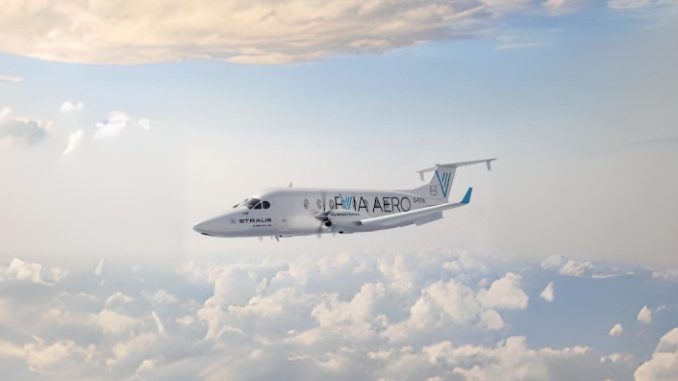
EVIA AERO has become the European launch customer for Stralis Aircraft’s hydrogen electric aircraft. The company has committed to purchase six Stralis Aircraft Beech 1900D-HE aircraft, with options for ten more, according to the airline.
“The agreement is an important milestone on the road to establishing one of Europe’s first zeroemission commercial aircraft fleet,” said EVIA AERO. “Australian clean-tech startup Stralis Aircraft is developing high-performance, low operating cost hydrogen-electric propulsion systems and aircraft. Their first commercial product will retrofit Beech 1900D aircraft with their proprietary propulsion system, with planned service entry by 2030. The aircraft will carry 15 passengers up to 432 nautical miles (800 km), flying at a speed of 270 knots (500 km/h) at 20,000 ft.
“In the run up to the aircraft’s delivery, Stralis and EVIA AERO will work closely together to support the efficient roll out and operation of hydrogen-electric aircraft. Stralis’technology delivers significant benefits: zero emissions (producing only water vapour), up to 50% lower operating costs, and reduced noise. Their proprietary system integrates fuel cells, liquid hydrogen tanks, and electric motors into existing and new aircraft designs. This innovation will help European airlines like EVIA AERO maintain viability as EU Emissions Trading System carbon taxes increase the cost for traditional fossil fuel powered airlines.”
EVIA AERO and Stralis aim to accelerate the implementation of sustainable solutions in aviation. In Europe, key coastal regions, such as the Mediterranean, the North and Baltic Seas, as well as the Alps, present lucrative opportunities for airlines to connect business destinations with smaller cities, say the companies.
Stralis’ high temperature PEM fuel-cell technology is significantly lighter than existing alternatives, potentially enabling aircraft to fly ten times further than battery-electric solutions at a lower cost than fossil-fuel-powered aircraft, according to Stralis. The company is already testing its hydrogen-electric propulsion systems on the ground and plans to achieve the first flight of its six-seat technology demonstrator aircraft later this year.
“Hydrogen-electric propulsion systems have fewer moving parts and operate at lower temperatures compared to existing aircraft engines, which is predicted to reduce engine maintenance costs by between 40-60%. This is similar to the maintenance cost reductions seen between combustion engine and electric cars. The hydrogen stored onboard in a tank, powers a fuel cell that generates electricity to power an electric motor, that drives a propellor.”
For more information
https://www.evia-aero.com/en/press-releases

